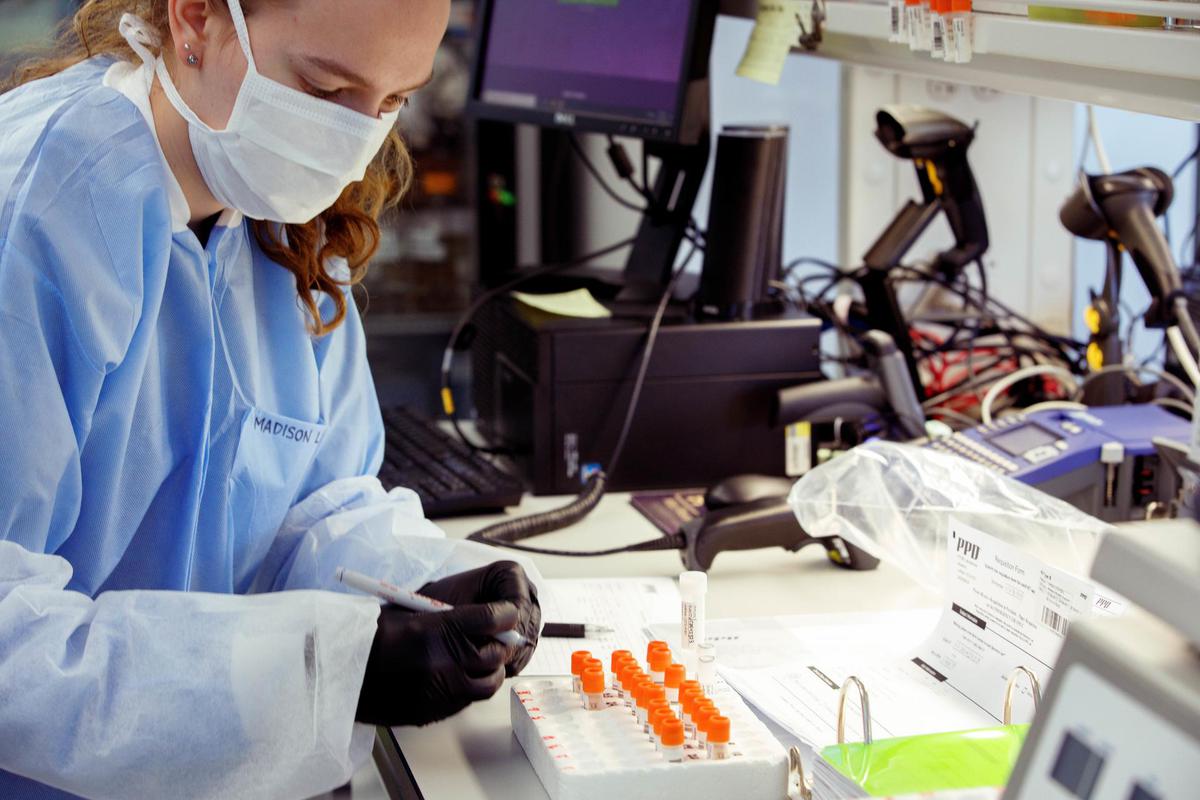The George Washington University is one of only four U.S. sites administering the first mRNA HIV vaccines to human study participants, a position tied in part to the university’s longstanding partnership with study sponsor IAVI.
The Phase I clinical trial, funded by the Bill & Melinda Gates Foundation and in collaboration with Moderna, will test the safety and immune responses of two mRNA vaccine antigens on 56 healthy adults.
Previous HIV clinical trials have focused on the efficacy of recombinant protein vaccines. These newer vaccines rely on the same mRNA technology that produced FDA-approved and authorized COVID-19 vaccines.
The mRNA HIV vaccines would work by delivering instructions to the body’s cells to produce versions of a protein found on the surface of HIV particles. The goal is to train the body’s immune system to recognize the protein and then develop broadly neutralizing antibodies that protect against a wide range of different HIV strains. Although HIV can mutate quickly, the plug and play nature of the mRNA technology could make developing the vaccine more flexible and customizable.
“The COVID-19 pandemic really demonstrated the success of mRNA vaccines and so the path from discussing its application for HIV to a Phase I clinical trial happened at an accelerated pace,” said David Diemert, clinical director of the GW Vaccine Research Unit (VRU) and professor of medicine at the School of Medicine and Health Sciences. “With these new mRNA vaccines, we’re on the cutting edge of innovative vaccine strategies for HIV.”
The first doses of the vaccine were administered last week. .
In addition to running one of the study sites, the VRU’s Clinical Immunology Laboratory will act as the processing lab and biorepository. The lab, led by Jeffrey Bethony, professor of microbiology, immunology and tropical medicine at GW SMHS, will process blood using both standard blood collection and processing techniques and more intensive techniques, such as leukapheresis, a procedure that isolates white blood cells. Drs. Bethony and Diemert, with previous grant funding from the DC Center for AIDS Research, also optimized a novel procedure for tissue collection, drawing a sample from the lymph node using ultrasound-guided fine needle aspiration. The procedure plays a critical role in this Phase 1 trial.
“This vaccine primes the immune response against HIV by stimulating cells in the lymph node,” said Dr. Bethony. “To access those cells, we have to sample from the draining lymph node. This procedure is not just unique to Phase I trials; it’s unique for vaccines. It’s very novel.”
The GW VRU has partnered with IAVI on two other HIV vaccine-related Phase I clinical trials over the past five years, serving as a lead site, central biorepository and support unit. In addition, the unit has conducted a number of other clinical vaccine trials to date , including a Phase III trial to test the now FDA-authorized COVID-19 vaccine from biotechnology company Moderna; a Phase II clinical trial for a COVID-19 vaccine booster from the biopharmaceutical company Sanofi; and a Phase I trial of a vaccine to prevent Lassa fever, an acute, animal-borne viral disease endemic to parts of West Africa.



